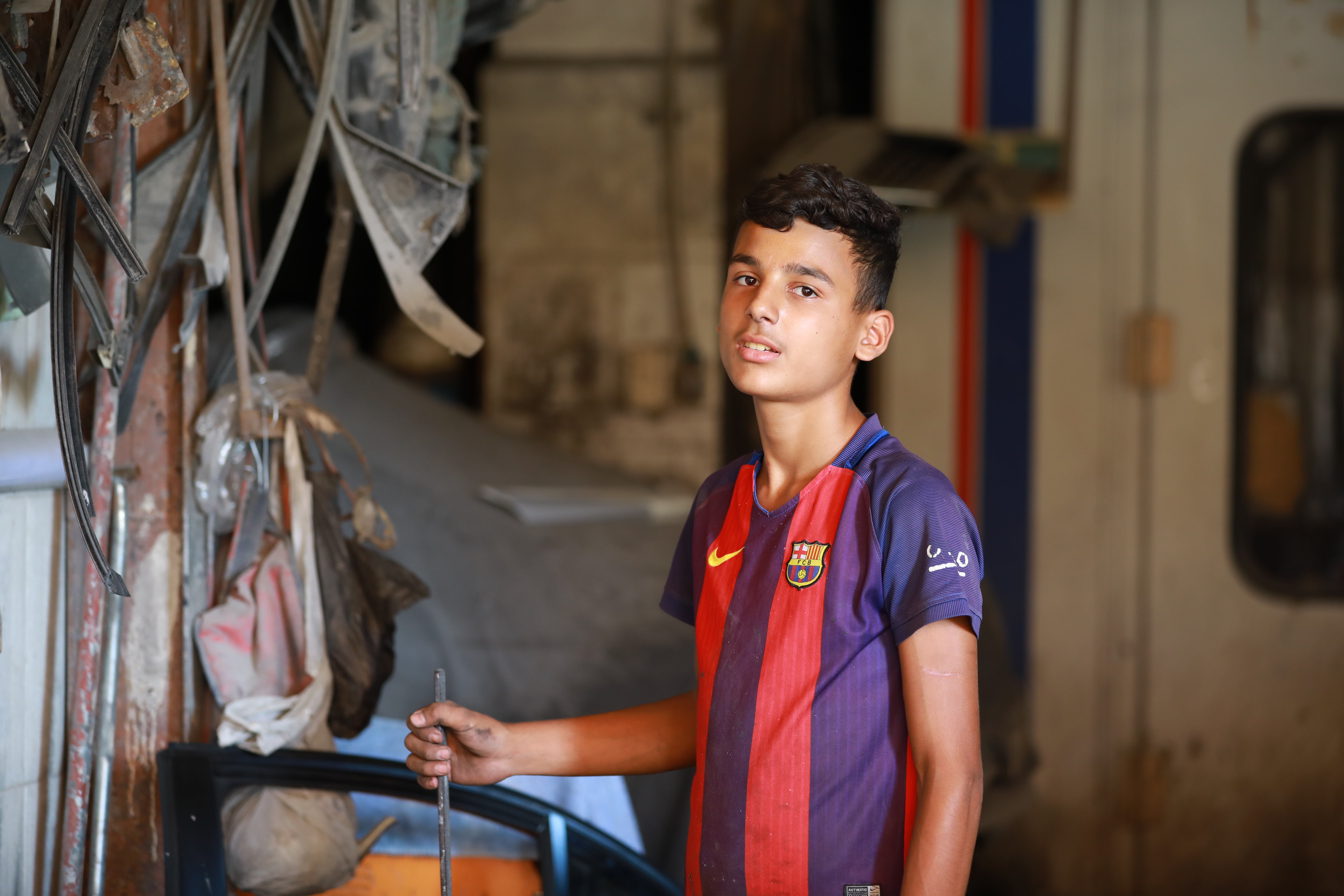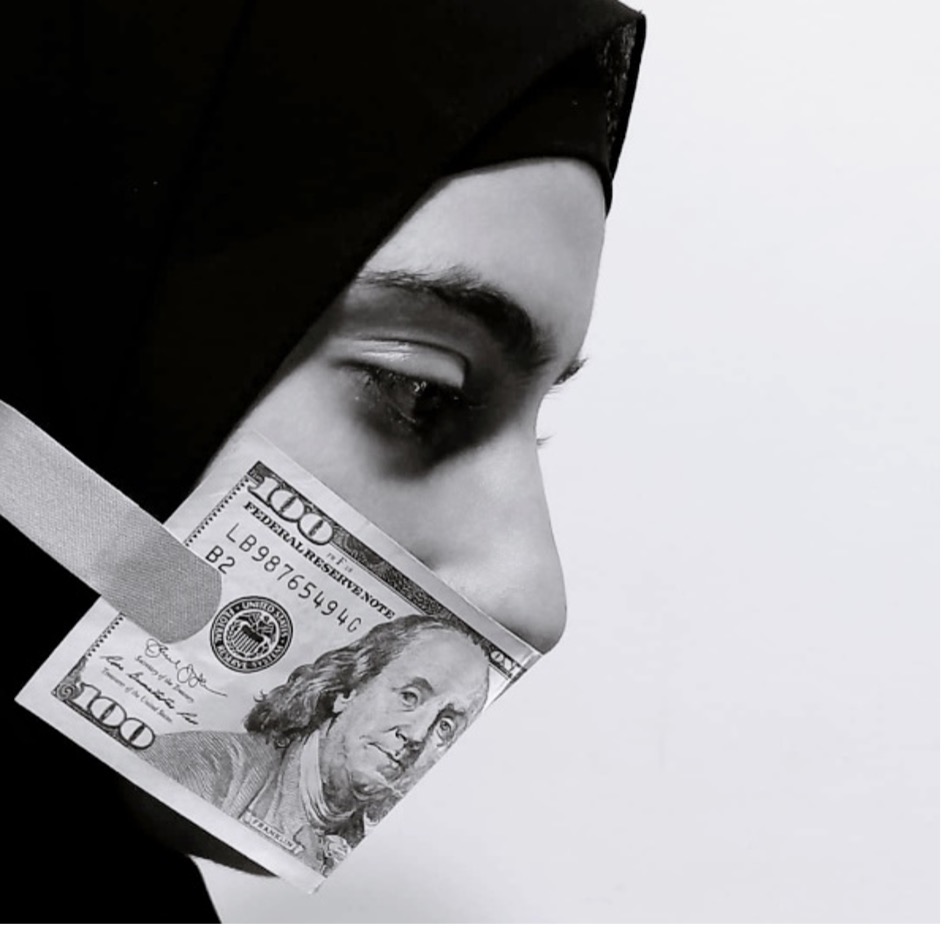Adolescents' experience of voice and agency in the Lebanese crisis

© Marcel Saleh/GAGE 2022
Photo story by Abou Hamza Tleis, a 19-year-old out-of-school Lebanese boy living in Baalbek city.
“Many children drop out of school because their parents cannot afford the tuition fees or the transportation costs like myself. My brother and I dropped out from school because we have to work to help with house expenses. Having a whole generation without proper education will surely lead us to work in illegal work. I feel like I am lifting the whole economic calamity on my back, working two jobs back to back.”

Photo story by Jouri Ismail, a 20-year-old out-of-school young Palestinian woman living in Ein el-Hilweh camp.
‘Girls are are deprived of education in Ein el-Hilweh camp because they are prevented from going to school either by their parents, brothers, fiancés or husbands. They are prevented from going to school because of fears that the girl would fall in love and talk boys, or even get influenced by other girls and start demanding greater freedoms. Some girls choose to drop out of school because they lack any hope of working in the future and making use of their education because work is forbidden for them.’

© Marcel Saleh/GAGE 2022
Photo story by Ola Hamadi, a 17-year-old in-school Palestinian girl living in Ein el-Hilweh camp.
‘Many small girls are getting engaged at a very young age. They are leaving school and looking for a groom because they want their fiancé or husband to spend on them to decrease the financial pressure on their families. Girls are doing this and they are not aware of the consequences of leaving school and getting married. It is becoming a norm among the girls and they are losing the opportunity to learn, work and be independent to spend on themselves.’

Photo story by Sam Atweh, a 16-year-old in-school Palestinian boy from Syria living in Ein el-Hilweh camp.
‘There are a variety of reasons for boys to drop out of school. The most common reason is that the boys and their parents prefer to stop studying because it is not useful for the children in their future. In Lebanon, Palestinians are banned from working in most of the professions even if they are university graduates. Hence, they are forced to enter the labor market at a young age to learn a skill, or they get enlisted with one of the factions.’

Photo story by Shaghaf Rifai, a 19-year-old out-of-school Palestinian girl from Syria living in Ein el-Hilweh camp.
‘Studying has become a nightmare. Online education is very hard. Many students do not have phones or laptops to study. Sometimes, siblings have to wait for each other to study because they all share one phone. On top of that, there is no electricity and internet most of the day. At night, you need to study on the candle light. My younger sister is always stressed and feels suffocated from studying in these conditions. She started hating studying.’

Photo taken by Ola Hamadi, a 17-year-old in-school Palestinian girl living in Ein el-Hilweh camp.
‘Since the covid-19 pandemic started, we started with the online education. We returned to school but then again returned to online studying. We are lost and cannot understand the lessons explanations nor can we follow up with the teachers and lessons. We feel embarrassed to ask the teachers questions and they take very long time to respond to us. I prefer to ask my friends instead of the teachers, but it is still hard for me to understand most lessons.

Photo story by Diana Akaman, a 16-year-old in-school Lebanese girl living in Baalbek city.
‘Girls are subject to harassment and irritation by young boys who gather in front of our schools. This is very annoying for girls and it makes them uncomfortable to walk while boys surround them. No one is doing anything to solve this, the school does not interfere with what is happening outside the school campus and there is no police or cameras on streets.’

Photo story by Marie Khoury, a 21-year-old in-school young Lebanese woman living in Baalbek city.
‘The crisis in Lebanon is suffocating us. Our life and conversations revolve now around the US Dollar. The crisis changed me a lot, I get stressed and depressed by any conversations about the crisis. I am fed up! I started thinking about surviving my day and I do not want to think about the future and if I will need money or not. Thinking about the future became useless and living day to day is the only thing we can do. I was not like that before, I always thought about my education and getting a high degree, working and being independent. But now everything changed! I stopped dreaming of becoming a nurse and I stopped thinking about anything. I am still studying but I am aware that it will not benefit me in any way.’

Photo story by Ivona Mohammad, a 17-year-old engaged out-of-school Palestinian girl living in Ein el-Hilweh camp.
‘Girls in the camp have no control over anything in their lives. The family dominate everything in a girl’s life. This all because of the culture and traditions in the camp. Girls are forbidden from talking to boys either on phone or in-person. Girls are not allowed to go out like boys. They are not allowed to study or work. Girls are born prisoners in their homes inside the bigger prison they live in, the walled-off camp. The family does not trust the girl and parents do not speak with their children. Girls always feel they are suffocating in their own home. Girls live in fear, anxiety and worry; they live a life of loneliness because no one understands them and listens to them.’

Photo story by Ivona Mohammad, a 17-year-old engaged out-of-school Palestinian girl living in Ein el-Hilweh camp.
‘Birds always make me think about freedom. Birds can fly wherever they want and eat whatever they find in nature. Male and female birds stay together all the time and are friends with each other. I wish I can be like a free bird and have freedom and ease of mind, but I rather feel like a bird in a cage where everything is forbidden for me. I cannot have male friends without having problems because of these friendships in my community as girls and boys are forbidden from forming friendships. I like my male friends more than girls but we are not free as the birds.’

Photo story Rawan Attiyah, a 19-year-old out-of-school Palestinian girl living in Ein el-Hilweh camp.
‘The sunset has been and continues to be girls’ imprisonment, from the time of my grandmother’s adolescence to my mother’s and until mine today. Sunset is the time for girls to return home. Despite the beauty of the sunset, girls cannot enjoy it.’
